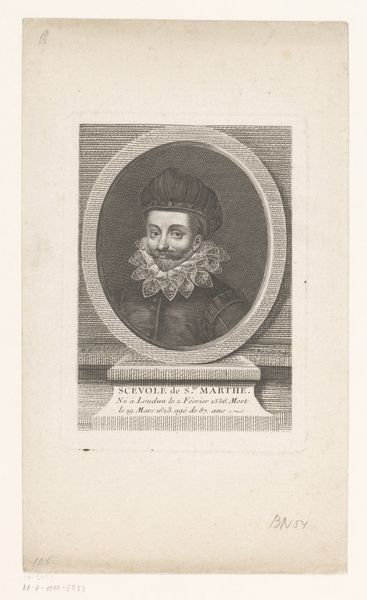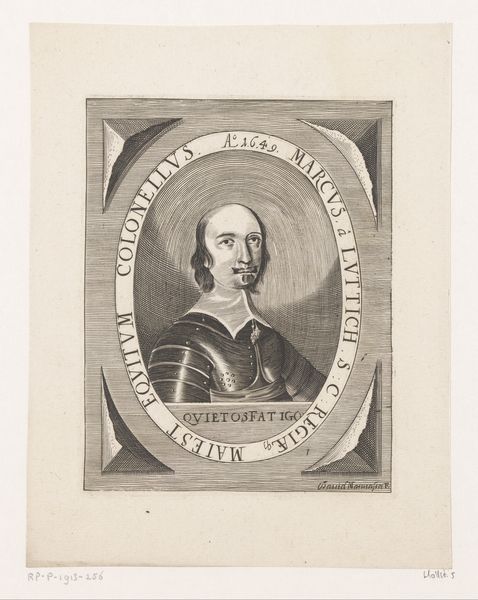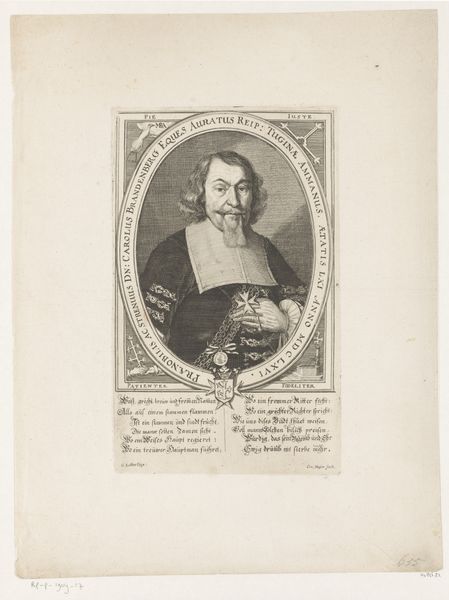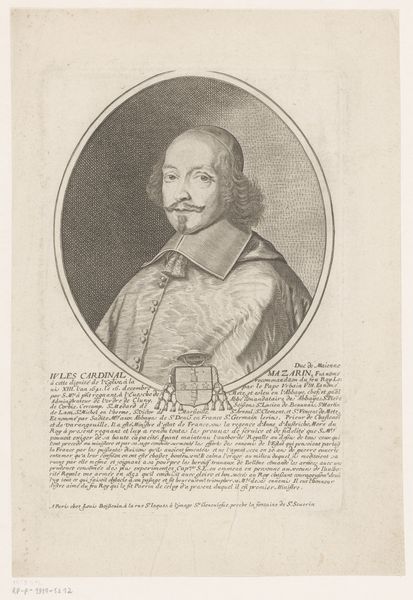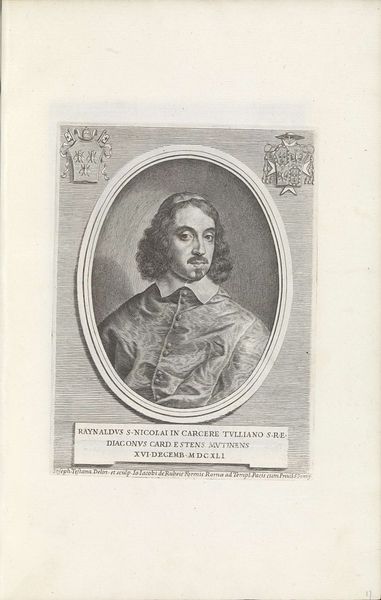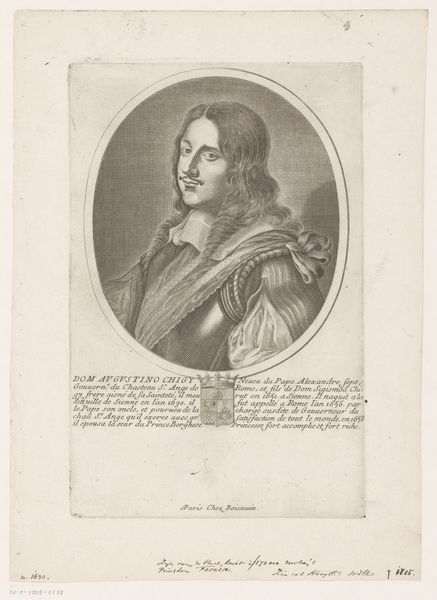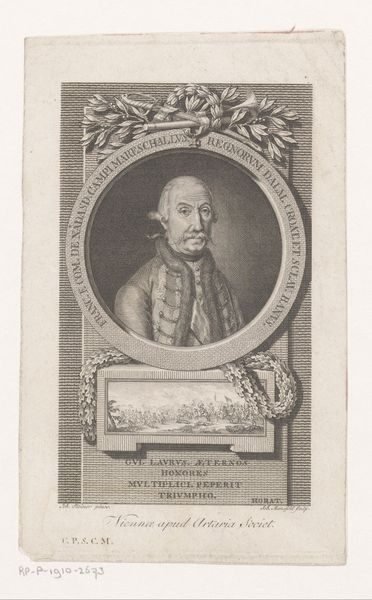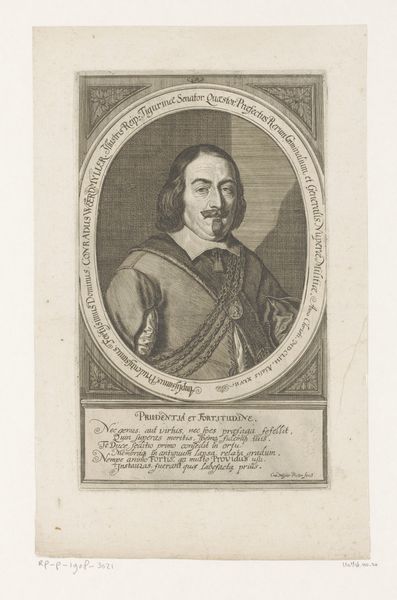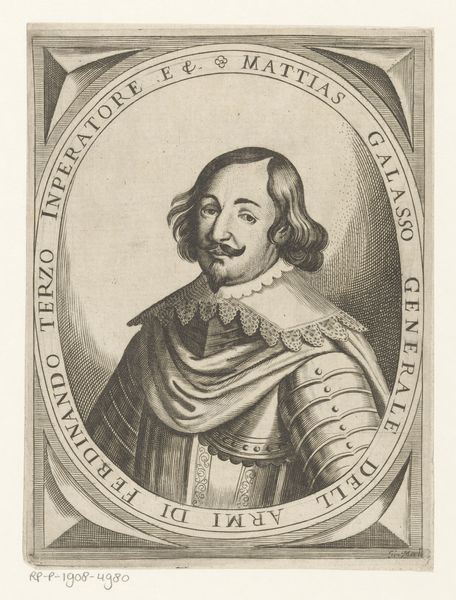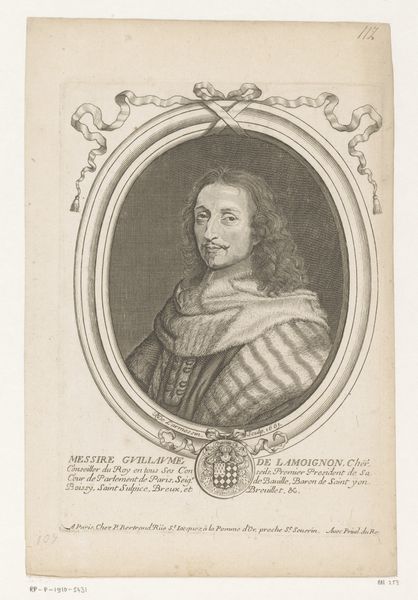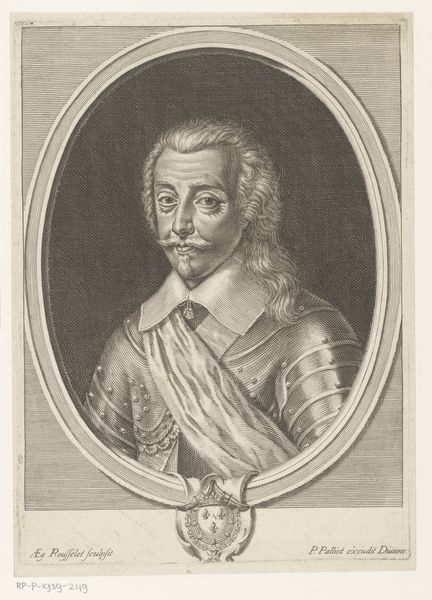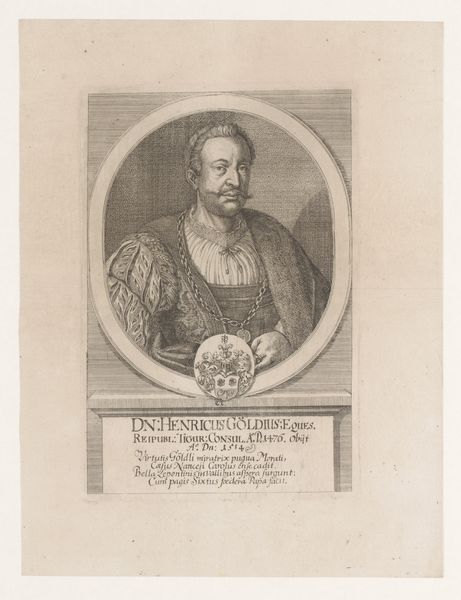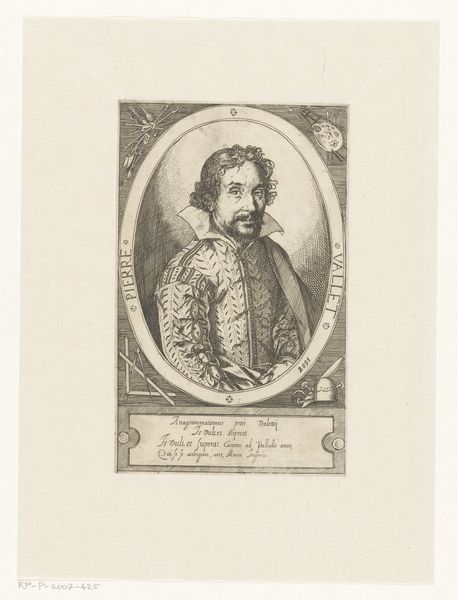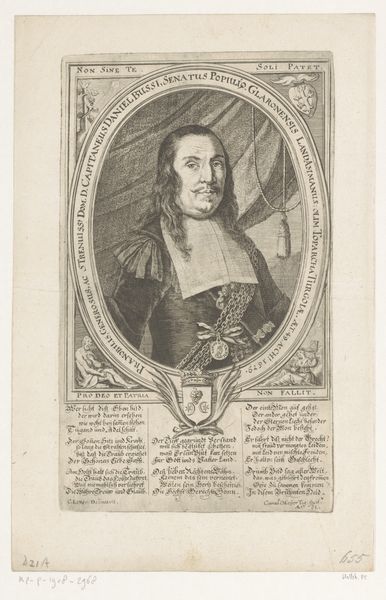
print, engraving
#
portrait
#
aged paper
#
baroque
#
parchment
# print
#
old engraving style
#
history-painting
#
engraving
Dimensions: height 154 mm, width 112 mm
Copyright: Rijks Museum: Open Domain
Editor: Here we have "Portrait of Concino Concini", a print from 1755 now residing in the Rijksmuseum. It's done in engraving and it's got this real "old world" feel to it. What do you make of this particular piece? Curator: Well, immediately it strikes me as an artifact embedded in a very specific historical moment. Think about the role of printmaking in the 18th century. This wasn't just about art; it was about disseminating information, constructing and perpetuating power. What statement is made by choosing to depict this individual? Editor: Concino Concini… Was he famous at the time? I'll admit I don't know a thing about him. Curator: He was incredibly influential – and controversial – as a minister to Louis XIII. Remember, portraiture in print form made powerful figures visible, reproducible, almost… omnipresent. How do you think that impacts the way we see this person, knowing this wasn’t a unique painted portrait meant for private viewing, but something meant for distribution? Editor: So, almost propaganda in a way? A way to solidify his image or… control it? Even posthumously, given the date. Curator: Precisely. Consider the strategic use of visual imagery in solidifying authority. Think about the institutions supporting or commissioning such works and ask yourself, whose interests were being served? Why engrave this portrait decades after his death? Perhaps to evoke a specific historical narrative? Editor: It does make you wonder who wanted him remembered this way and why they would pay to make that happen. So much more to an image than just, you know, face value. Thanks, I am never going to look at portraits the same way again! Curator: Indeed! And thinking about the socio-political reasons is really key here, which can often give rise to many compelling artworks we still enjoy today.
Comments
No comments
Be the first to comment and join the conversation on the ultimate creative platform.
